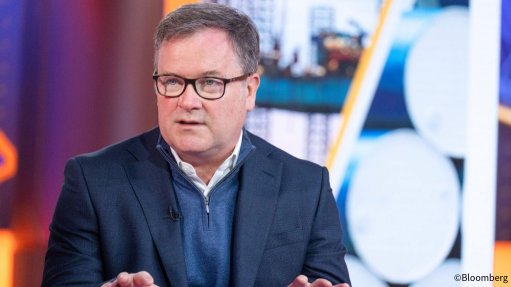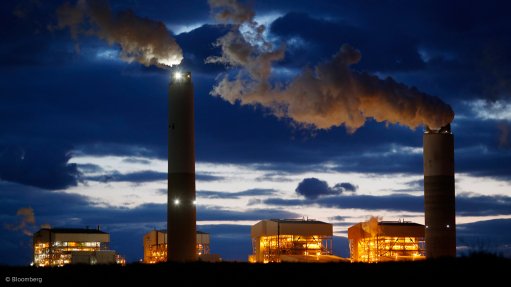Botswana cannot afford to take water risks – hydrologist
As a semi-arid country, Botswana cannot afford to take any risks when it comes to water management in new mining projects, says natural resource and develop- ment solutions provider SRK Consulting Johannesburg partner and principal hydrolo- gist Peter Shepherd.
The country’s stable economy and mine- ral wealth have allowed some substantial developments in recent years, including the P1-billion expansion of the Morupule power station and the parallel boosting of output capacity at the Morupule coal mine.
“There are essentially three water-related problems facing most big projects, namely too little water, excess water and water which is too dirty for consumption or use. The challenge for Botswana is that, as a particularly dry country, there is little margin for error when it comes to water management,” says Shepherd.
He notes that water, pumped from mining areas, can usually be used to contribute to on-mine water requirements. Different qualities of water can be used in different processes within the mine water circuits, and treatment of some water may be required.
At the same time, mines must be able to trap higher-than-expected rainfall so that mine water is not allowed to flow off the property and cause damage to the surrounding environment.
“Securing enough water is a challenge on its own, as 66% of water use in Botswana must be supplied by groundwater. Mines may need to tap groundwater for its own use if surface water is not readily available, but this could affect the level of the water table relied upon by nearby towns and villages.
“Unless early-stage feasibility studies recognise and cost these eventualities, the future profitability of projects will be brought into conflict with environmental concerns,” he says.
Despite the dry climate, Botswana-based mines face the equally serious challenge of too much water, as rainfall can be concentrated in intense downpours.
“There will always be times when mines have excess water to deal with, and will need extra storage capacity to hold the water. Disposing of polluted water in Botswana can be particularly damaging owing to the dry conditions, as there is very little natural dilution of environmentally damaging flow into local rivers,” says Shepherd.
Among the essential elements of good water management infrastructure, is a storm compartment in mine dams, where water from infrequent occurrences, such as storms that take place every 50 to 100 years, can be safely retained.
“It’s a real balancing act on the part of government to allocate the scarce water resources and protect the environment from water-borne pollution. The technologies employed by mines, power stations and other projects increasingly need to prioritise more efficient use of water,” he notes.
Fortunately, Botswana has world-class diamond mines with plenty of experience in developing and implementing best practice in this field, he says, stating that he has worked extensively with some of these companies.
“The coal sector can definitely take a leaf out of the book of the diamond miners, who have to deal with deeper pits but essentially face all the same problems,” he says.
An example of failed water manage- ment, and the costs associated with such a setback, is the fate of the Crocodile River basin around eMalahleni, in Mpumalanga, in South Africa.
The river basin is becoming so polluted with sewage, industrial pollution and acid mine drainage that the water is unusable for watering crops and cannot be drunk or swum in.
“This is what Botswana wants to avoid. In Mpumalanga, some coal mining companies prioritised short-term financial gains rather than looking at the long-term feasibility of those coalfields.
“We also need to be careful not to repeat these mistakes when we move into the Water- berg coalfields, as this area, like Botswana, boasts some pristine environmental heritage, and irreparable damage could be inflicted in a short time,” notes Shepherd.
He emphasises the need to avoid ‘externalising’ the cost of environmental degeneration – by fully providing for proper water management facilities on new or expanding mines.
“If mines get their numbers wrong – by not appreciating the water supply and demand fluctuations they will encounter – it will disrupt the whole financial model and create serious stresses on profitability and on the local natural- and human-environment,” he says.
Rather, he says they should know upfront what it is going to cost for each cubic metre of water they will need to treat, and exactly what the capital investment will be for an effective water treatment works.
“While this will undoubtedly make electricity production more expensive, it is vital that all stakeholders come to terms with the real cost. Managing water well will definitely impact on the price of electricity.
“If the costings are accurate, customers and the public have upfront price expectations. What you do not want is an approach that underestimates a project’s impact on the quality of water, air and surroundings, which simply leads to environmental degra- dation with no one willing to pay the real cost,” Shepherd concludes.
Comments
Press Office
Announcements
What's On
Subscribe to improve your user experience...
Option 1 (equivalent of R125 a month):
Receive a weekly copy of Creamer Media's Engineering News & Mining Weekly magazine
(print copy for those in South Africa and e-magazine for those outside of South Africa)
Receive daily email newsletters
Access to full search results
Access archive of magazine back copies
Access to Projects in Progress
Access to ONE Research Report of your choice in PDF format
Option 2 (equivalent of R375 a month):
All benefits from Option 1
PLUS
Access to Creamer Media's Research Channel Africa for ALL Research Reports, in PDF format, on various industrial and mining sectors
including Electricity; Water; Energy Transition; Hydrogen; Roads, Rail and Ports; Coal; Gold; Platinum; Battery Metals; etc.
Already a subscriber?
Forgotten your password?
Receive weekly copy of Creamer Media's Engineering News & Mining Weekly magazine (print copy for those in South Africa and e-magazine for those outside of South Africa)
➕
Recieve daily email newsletters
➕
Access to full search results
➕
Access archive of magazine back copies
➕
Access to Projects in Progress
➕
Access to ONE Research Report of your choice in PDF format
RESEARCH CHANNEL AFRICA
R4500 (equivalent of R375 a month)
SUBSCRIBEAll benefits from Option 1
➕
Access to Creamer Media's Research Channel Africa for ALL Research Reports on various industrial and mining sectors, in PDF format, including on:
Electricity
➕
Water
➕
Energy Transition
➕
Hydrogen
➕
Roads, Rail and Ports
➕
Coal
➕
Gold
➕
Platinum
➕
Battery Metals
➕
etc.
Receive all benefits from Option 1 or Option 2 delivered to numerous people at your company
➕
Multiple User names and Passwords for simultaneous log-ins
➕
Intranet integration access to all in your organisation


















